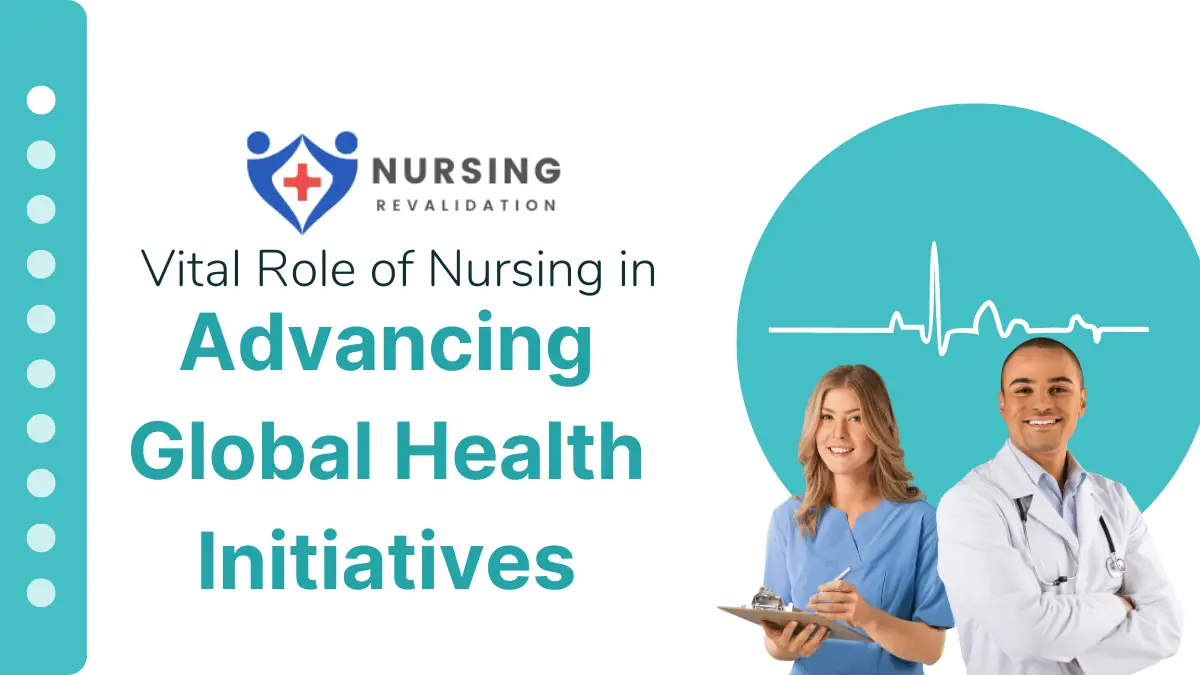Nursing stands as the cornerstone of healthcare systems worldwide, playing a pivotal role in shaping and advancing global health initiatives. From bedside care to community outreach, nurses are at the forefront of delivering healthcare services, promoting preventive measures, and advocating for health equity. This article delves into the profound impact of nursing on global health initiatives, exploring its multifaceted contributions, challenges, and future prospects.
The Evolution of Nursing in Global Health
Nursing as a Profession
Nursing has evolved from its traditional roles as caregivers to encompass diverse responsibilities, including clinical practice, education, research, and leadership. This evolution reflects the profession’s adaptability to changing healthcare landscapes and emerging health challenges.
Global Health Landscape
In recent decades, globalization, urbanization, and demographic shifts have transformed the global health landscape, presenting both opportunities and challenges. Issues such as infectious diseases, non-communicable diseases, maternal and child health, and health disparities have garnered international attention, necessitating collaborative efforts to address them.
The Impact of Nursing on Global Health Initiatives
Primary Healthcare Delivery
Nurses serve as the backbone of primary healthcare delivery, particularly in resource-limited settings where they often act as the primary healthcare providers. Their roles encompass health promotion, disease prevention, diagnosis, treatment, and rehabilitation, thereby addressing a wide range of health needs within communities.
Community Engagement and Education
Nurses play a vital role in community engagement and education, empowering individuals and communities to take charge of their health. Through outreach programs, health screenings, and health education sessions, nurses raise awareness about prevalent health issues, promote healthy behaviors, and facilitate access to healthcare services.
Health Policy Advocacy
Nurses are increasingly involved in health policy advocacy, leveraging their frontline experiences to influence policy decisions and shape healthcare agendas. Their insights into healthcare delivery challenges, patient needs, and workforce issues inform evidence-based policymaking, thereby fostering health system improvements and ensuring equitable access to care.
Challenges and Opportunities
Workforce Shortages
One of the most pressing challenges facing nursing and global health initiatives is the shortage of qualified nurses, particularly in underserved regions. Addressing workforce shortages requires investments in nursing education, recruitment, retention, and professional development, along with policy reforms to create supportive work environments.
Health Inequities
Health inequities persist globally, disproportionately affecting marginalized populations and underserved communities. Nurses play a crucial role in addressing these inequities by advocating for social justice, promoting health equity, and delivering culturally sensitive care that respects individuals’ diverse needs and backgrounds.
Technological Advancements
Technological advancements, including telemedicine, mobile health apps, and digital health platforms, offer new opportunities to enhance nursing practice and expand access to healthcare services, especially in remote or rural areas. Embracing technology-enabled care models can improve health outcomes, increase efficiency, and bridge gaps in healthcare delivery.
Future Directions and Recommendations
Investments in Nursing Education and Training
To meet the evolving healthcare needs of populations worldwide, there is a pressing need for increased investments in nursing education and training programs. This includes expanding access to quality education, enhancing curricula to reflect current healthcare challenges, and providing ongoing professional development opportunities for nurses at all career stages.
Promotion of Interprofessional Collaboration
Promoting interprofessional collaboration among healthcare providers is essential for achieving comprehensive, patient-centered care and addressing complex health issues effectively. By fostering teamwork, mutual respect, and shared decision-making, interprofessional collaboration can optimize healthcare delivery, improve patient outcomes, and enhance the overall quality of care.
Advocacy for Health System Strengthening
Nurses must continue to advocate for health system strengthening initiatives that prioritize primary healthcare, promote health equity, and address systemic barriers to access and quality of care. This includes advocating for increased healthcare funding, policy reforms, and investments in essential health infrastructure and workforce development.
Conclusion
In conclusion, nursing plays a fundamental role in advancing global health initiatives, contributing to improved health outcomes, strengthened health systems, and enhanced community well-being worldwide. By recognizing and addressing the challenges facing nursing and leveraging opportunities for innovation and collaboration, we can harness the full potential of nursing to build healthier, more equitable societies for future generations.


